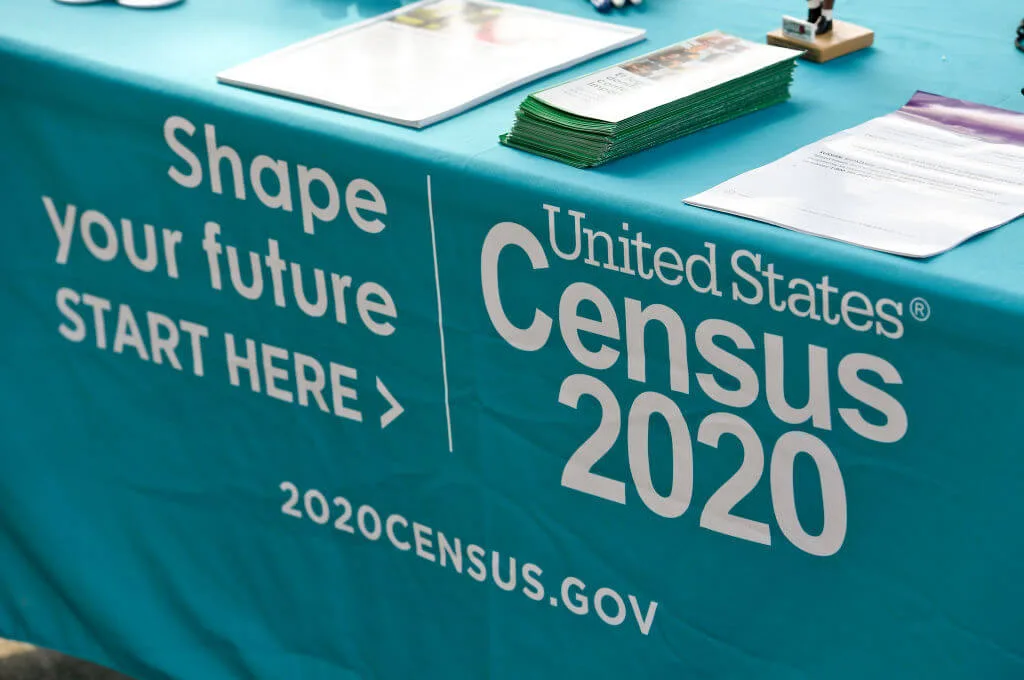
The results determine funding that impacts everything from the number of teachers at your child’s school to your ability to see a doctor or go to a hospital.
Starting on Thursday, March 12, residents across the country will begin receiving an important piece of mail, inviting them to play a role in determining not just the future of United States, but the future of their own state, city, and neighborhood.
No, we’re not talking about the 2020 election (though that’s important too!). We’re talking about the 2020 United States Census.
Wait, what is the Census?
The census is a once-a-decade, constitutionally mandated headcount of every single person living in the 50 states, Washington D.C., and five U.S. territories. Imagine a school teacher counting every student on a school trip to make sure everyone’s present—but for all of America.
Everyone living in the U.S. or its territories, including non-citizens, is required by law to participate in the census.
Why does the U.S. do this? Why does the census matter?
Census results determine how many billions of dollars of federal funding flow into states and communities each year. This funding affects everything from the number of teachers and guidance counselors at your child’s school to your ability to see a doctor or go to a hospital to the quality of the roads you drive on or the public transportation you take.
The census also plays a huge role in political representation. Census results determine how many seats each state receives in the U.S. House of Representatives and are used to draw congressional and state legislative districts, which can determine who represents you and what sorts of laws are passed on the state or federal level.
What questions are on this year’s census?
There are 12 questions on the 2020 Census. They include questions asking your name, age, sex, gender, race, and the number of people living in your household. The Census will not include a question asking whether you are an American citizen.
I’m worried about giving the government my information. Will it be safe?
Yes. The Census Bureau is required by law to protect your answers and cannot release any identifiable information about you, your home, or your business. Your responses are used only to produce statistics, which determine funding and political representation. The Census Bureau does not disclose any personal information or share it with law enforcement or other government agencies.
Census bureau employees even take a lifetime oath to protect your personal information for life and any violation comes with a penalty of up to $250,000 and/or up to five years in prison.
How do I participate?
There are three ways to respond to the Census: online, by mail, and by phone. Between Mar. 12-20, you should receive official Census Bureau mail with detailed information on how to respond to the census.
By April 1, which is Census Day, you will receive an invitation to officially participate in the 2020 Census and you should respond for everyone living in your household as of April 1, including children, roommates, family members, or friends. If you haven’t responded by May, the Census Bureau will begin following up and census takers will start visiting homes that have yet to respond to ensure an accurate count.
Will the Census be available in other languages?
Yes. Online and phone responses can be completed in 13 languages: English, Spanish, Chinese, Vietnamese, Korean, Russian, Arabic, Tagalog, Polish, French, Haitian Creole, Portuguese, and Japanese.
What if I’m a college student or live in a nursing home or correctional facility?
If you live or stay in group quarters, such as a college dormitory, military barracks, or nursing home, the Census Bureau will identify a group quarters administrator at your location to ensure you are counted in the 2020 Census.
What if I live in an RV park, campground, or hotel?
Census takers will visit transitory locations such as RV parks and hotels at scheduled times between April 9 and May 4, to conduct census interviews with individuals in occupied units using a paper questionnaire.
I’m still not convinced. Why should I participate?
We’re going to let Rebecca DeHart, CEO of the Georgia-based nonprofit Fair Count, answer that question.
“Our entire democracy is so dependent on the outcome of the census. Everything—more than 300 federal programs, $1.5 trillion dollars, how we re-proportion congress, how we do redistricting, how school zones are decided, how we decide where to open up businesses, grocery stores—is so dependent on this count,” DeHart told COURIER.
“It is really the only thing that can make decisions for a community a decade at a time,” DeHart said. “We get one chance to get this right and if we don’t get it right, then communities will be suffering for a decade to come.”
Politics

Teamsters and UPS Reach Tentative Deal to Avoid Strike, 340,000 Workers to Get Raises
The tentative deal represents a huge win for full- and part-time UPS Teamster workers, who would get significant pay raises and better working...



One Republican Senator Is Blocking 265 Military Promotions, Leaving the Marines Without a Confirmed Leader
Sen. Tommy Tuberville's decision means these military officers are not getting the pay raises they’re owed, cannot move their families to wherever...
Local News



Teamsters and UPS Reach Tentative Deal to Avoid Strike, 340,000 Workers to Get Raises
The tentative deal represents a huge win for full- and part-time UPS Teamster workers, who would get significant pay raises and better working...



One Republican Senator Is Blocking 265 Military Promotions, Leaving the Marines Without a Confirmed Leader
Sen. Tommy Tuberville's decision means these military officers are not getting the pay raises they’re owed, cannot move their families to wherever...




